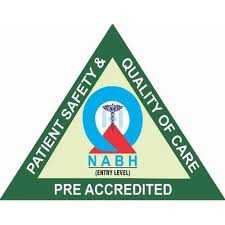
The human eye is a marvel of biological engineering, allowing us to perceive the world around us with incredible clarity and detail. At the heart of this intricate optical system lies the retina, a light-sensitive tissue that plays a crucial role in vision. However, various eye conditions and diseases can affect the health of the retina, potentially leading to vision impairment or loss. In such cases, retina surgery emerges as a transformative solution, offering hope and the possibility of improved vision. In this comprehensive guide, we will explore retina surgery, its various procedures, and what patients can expect when undergoing this remarkable medical intervention.
Understanding the Retina
Before delving into retina surgery, it’s essential to understand the significance of the retina in the visual process. The retina is a thin layer of tissue located at the back of the eye, akin to the film in a camera. Its primary function is to capture incoming light and convert it into electrical signals. These signals are then transmitted to the brain via the optic nerve, where they are processed and translated into the images we perceive.
Common Retina Conditions
A range of eye conditions can affect the health and function of the retina, often leading to vision problems. Some common retina-related issues include:
- Retinal Detachment: This occurs when the retina pulls away from its normal position, leading to vision loss.
- Macular Degeneration: A condition that affects the central part of the retina (the macula) and can result in blurred or distorted vision.
- Diabetic Retinopathy: A complication of diabetes that damages the blood vessels in the retina, potentially leading to vision impairment.
- Retinitis Pigmentosa: A genetic disorder that causes gradual vision loss and night blindness.
- Retinal Tears: Small breaks or tears in the retina that can lead to detachment if left untreated.
The Role of Retina Surgery
Retina surgery is a specialized field of ophthalmology aimed at preserving or improving vision by addressing conditions that affect the retina. The primary goals of retina surgery are to reattach a detached retina, repair retinal tears, remove abnormal blood vessels, and address other issues compromising retinal function. Let’s explore some of the most common retina surgery procedures:
1. Retinal Detachment Surgery
Retinal detachment is a medical emergency that requires immediate intervention. There are several procedures used to reattach the retina, including:
- Scleral Buckling: In this procedure, a small band or buckle is placed around the eye to support the detached retina and bring it back into its normal position.
- Vitrectomy: During a vitrectomy, the vitreous gel inside the eye is removed, and any retinal tears or detachments are repaired. Gas or silicone oil may be injected into the eye to help reattach the retina.
2. Laser Photocoagulation
Laser photocoagulation is a common treatment for diabetic retinopathy and other conditions characterized by abnormal blood vessel growth. In this procedure, a laser is used to create small burns on the retina, sealing off leaky blood vessels and reducing the risk of further damage.
3. Intravitreal Injections
Intravitreal injections involve the injection of medications directly into the vitreous gel of the eye. These injections are often used to treat conditions like age-related macular degeneration and diabetic macular edema. Medications such as anti-VEGF drugs help inhibit the growth of abnormal blood vessels and reduce swelling in the retina.
4. Retinal Cryopexy
Retinal cryopexy is a procedure that uses extreme cold to treat retinal tears or detachments. A freezing probe is applied to the outside of the eye, creating a scar that seals the tear or reattaches the retina.
5. Epiretinal Membrane Surgery
Epiretinal membranes are thin layers of scar tissue that can form on the surface of the retina, distorting vision. Surgery is often necessary to remove these membranes and restore visual clarity.
What to Expect During and After Retina Surgery
Undergoing retina surgery can be a daunting prospect, but understanding the process can help alleviate anxiety. Here’s what patients can typically expect before, during, and after retina surgery:
Before Surgery:
- Consultation: Patients will have a consultation with their ophthalmologist to discuss the procedure, address any concerns, and review medical history.
- Pre-operative Preparations: Patients may be advised to stop certain medications, avoid eating or drinking before the surgery, and arrange transportation to and from the surgical facility.
During Surgery:
- Anesthesia: Retina surgery is typically performed under local anesthesia to numb the eye. General anesthesia may be used for children or in specific cases.
- Procedure: The specific procedure will vary depending on the patient’s condition. Surgery may involve the use of microsurgical instruments and microscopic visualization of the retina.
- Duration: The duration of the surgery can vary but is generally relatively short, typically lasting 1-2 hours.
After Surgery:
- Recovery Room: Patients will spend some time in a recovery area immediately after the surgery to ensure stability and monitor for any immediate complications.
- Post-operative Care: Patients will receive detailed post-operative care instructions, including the use of prescribed eye drops and the importance of follow-up appointments.
- Visual Recovery: Visual recovery time varies depending on the procedure and the individual patient. Some patients may experience improved vision shortly after surgery, while others may require more time for healing and vision improvement.
- Follow-up Appointments: Regular follow-up appointments with the ophthalmologist are crucial to monitor progress and address any post-operative concerns.
It’s important to note that every individual’s experience with retina surgery can differ based on their specific condition and the chosen treatment. Patients should openly communicate with their ophthalmologist to gain a clear understanding of what to expect before, during, and after the procedure.
Conclusion: Restoring Vision and Quality of Life
Retina surgery is a remarkable field of medicine that offers hope to individuals facing vision-threatening conditions. By understanding the procedures and expectations associated with retina surgery, patients can approach the process with confidence and optimism. Whether it’s repairing a detached retina, treating diabetic retinopathy, or addressing other retinal issues, these surgical interventions have the potential to restore vision and significantly improve the quality of life for those who undergo them. As technology and medical advancements continue to progress, retina surgery remains at the forefront of preserving and enhancing one of our most precious senses: sight.
At Vision Plus Eye Center, we specialize in improving vision through advanced retina surgery procedures. Our expert team ensures precision and care, addressing various retinal conditions. Expect top-tier medical expertise and compassionate support, guiding you towards better vision and eye health. Your vision is our priority.
Call Now at 0120-2481481, 2480480 +91 88003 13134 or email us at info@visionplus.net.in.
Book an Online Appointment: https://visionplus.net.in/contact/

